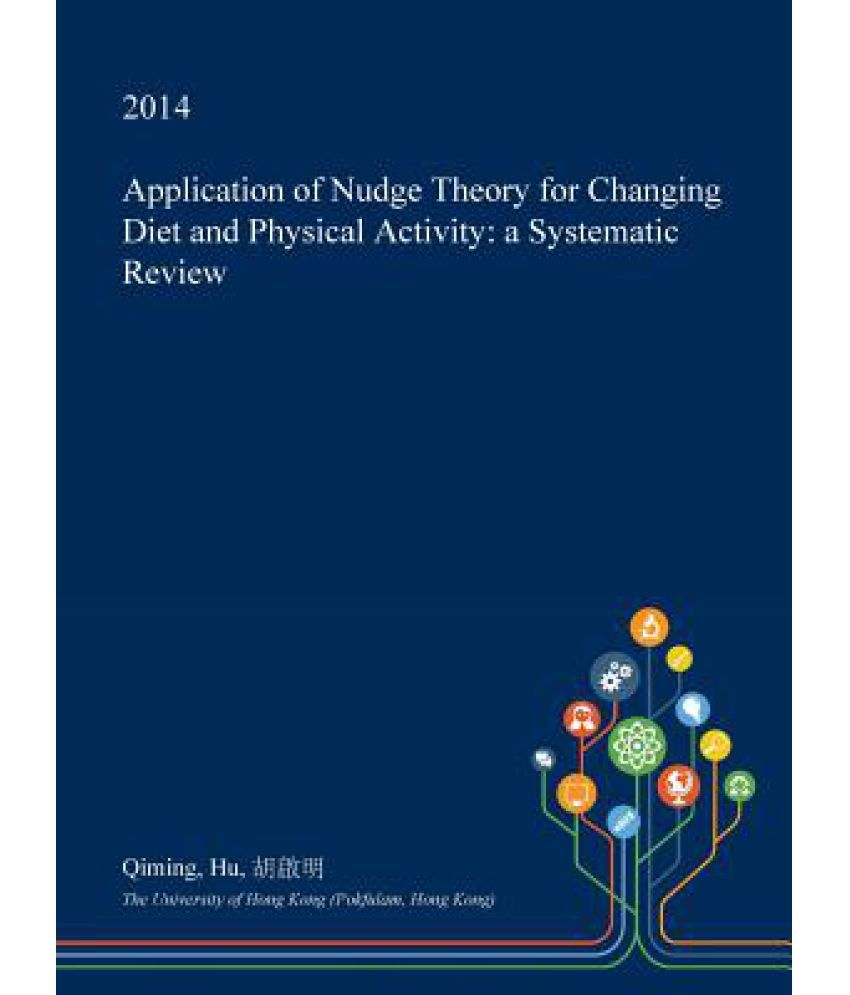Something went wrong. Please refresh the page and try again.
Something went wrong. Please refresh the page and try again.
Notifications can be turned off anytime from settings.
Item(s) Added To cart
Qty.0
Something went wrong. Please refresh the page and try again.
Something went wrong. Please refresh the page and try again.
Exchange offer not applicable. New product price is lower than exchange product price
Please check the updated No Cost EMI details on the payment page
Exchange offer is not applicable with this product
Exchange Offer cannot be clubbed with Bajaj Finserv for this product
Product price & seller has been updated as per Bajaj Finserv EMI option
Please apply exchange offer again
Your item has been added to Shortlist.
View AllYour Item has been added to Shopping List
View AllSorry! Application of Nudge Theory for Changing Diet and Physical Activity is sold out.


You will be notified when this product will be in stock
| ||||||||||||||
Learn More about the Book
This dissertation, "Application of Nudge Theory for Changing Diet and Physical Activity: a Systematic Review" by Qiming, Hu, 胡啟明, was obtained from The University of Hong Kong (Pokfulam, Hong Kong) and is being sold pursuant to Creative Commons: Attribution 3.0 Hong Kong License. The content of this dissertation has not been altered in any way. We have altered the formatting in order to facilitate the ease of printing and reading of the dissertation. All rights not granted by the above license are retained by the author.
Abstract:
Background: Unhealthy lifestyle are important contributors to chronic illness in Hong Kong and worldwide. Lifestyle modification, particularly improving healthy diet and physical activity, can prevent the development of various chronic illnesses, improve disease conditions, reduce the risk of complications and enhance the quality of life. Many behavioural models have been applied to achieve lifestyle modification, but the major limitation was that they mainly treated human behaviours as individual behaviours that were subsequent to rational thinking. Nudge theory, an advanced behavioral concept, proposed to change individual's motivation, incentives and decision making through non-direct suggestion and non-forced reinforcement. However, the application of Nudge theory has been challenged on the lack of evidence to prove its effectiveness, and its controversial framework for ethical analysis.
Objectives: This review was to synthesize the empirical findings about the effectiveness of using nudge theory for lifestyle modification including healthy diet and physical activity.
Methodology: Interventional and experimental studies that were conducted based on Nudge theory to change diet or physical activity was identified from the published literature. The studies were divided into two large groups according to outcome measured: healthy diet and physical activity, and they were systematically synthesized. The "nudges" used in these studies were categorized as six types of "nudges" summarized by "nudge unit" as "MINDSPACE" for further discussion. The type of "nudges" that were used in the studies and their effectiveness on changing diet and physical activity was abstracted.
Results: Totally, nine articles that met the inclusion criteria were included. Five nudges were identified from the included studies, including Priming (P), Default (D), Salience & Affect (SA), Incentives (I) and Messenger & Norms (MN). It is found that the strategies and methods applied on the same nudge may have different effectiveness. Seven studies applied Priming (P) as nudge to motivate change in diet, which used two major strategies: "availability" and "accessibility." The evidence was strong that altering the availability of food presence could be effective to change food selection. The results of studies using accessibility were heterogeneous and contradictive with each other. Another three studies used different nudges including Default, Salience & Affect and Incentive. The effectiveness of Default (D) as nudge seemed to be blurry, and the sustainability remained questionable. The ethical consideration is always the primary pillar for applying nudging theory. As long as the applications are stick to necessary ethical concerns, the nudging model can be beneficial through mild "manipulation" rather than harmful.
Conclusion: It has potential opportunity to carry out "libertarian paternalism" in Hong Kong. However, it is still a long way to take application of nudging model into regulation, legislation and daily practice. The evidences for each type of nudge were not consistent and enough. Besides, the monitoring and evaluation are not available yet. Future research can be focused on transferring these applications into real practice with an effective monitoring and evaluation system.
DOI: 10.5353/th_b5320341
Subjects:
Diet - Health aspects
Exercise - Health asp
The images represent actual product though color of the image and product may slightly differ.
Snapdeal does not select, edit, modify, alter, add or supplement the information, description and other specifications provided by the Seller.
Register now to get updates on promotions and
coupons. Or Download App